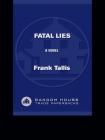Fatal Lies Frank Tallis (best fiction books to read txt) 📖

- Author: Frank Tallis
Book online «Fatal Lies Frank Tallis (best fiction books to read txt) 📖». Author Frank Tallis
“Ah,” said Liebermann, showing evident signs of satisfaction. “That makes perfect sense.”
“I beg your pardon?”
“The Erlkönig. The father and son ride through a wood.”
Rheinhardt stubbed out his cigar.
“Please, do continue,” Liebermann added.
“Saint Florian's is situated close to the small village of Aufkirchen—built on the site of a religious foundation of the same name. Some of the original building still survives behind the new Gothic façade—old cloisters, a chapel, and so forth. I've been told that the school attracts the less academically gifted sons of well-heeled families.”
Liebermann filled Rheinhardt's empty glass. The inspector thanked him, and recounted the general facts of the investigation. He summarized the statements of Nurse Funke and the three masters: Eichmann, Becker, and Gärtner. He then opened his case and removed a thick brown envelope. Inside were photographs, which he passed to his friend.
The boy, Thomas Zelenka, lying on the infirmary bed.
A school laboratory.
The surface of a bench covered with bottles, dishes, and test tubes.
They were not particularly clear photographs. Most were dark and grainy.
A notebook and an untouched pastry.
“What kind of experiments was the boy doing?” Liebermann asked.
“He was looking at the effects of mixing vinegar with certain chemical compounds. We took samples and had them analyzed. The findings were unremarkable.”
“And what did the school doctor have to say?”
“Nothing. He arrived after the boy's body had been removed. A tree was blocking the main road, and his driver—like ours—got lost.”
The next image showed Zelenka's naked body in the morgue. Under the bright electric light, his features and physique were more clearly defined.
“So, how did he die—exactly?”
Rheinhardt shook his head. “We don't know. Professor Mathias couldn't find anything wrong with him.”
“He just… died?”
“Yes.”
“In which case, I would have expected Professor Mathias to assume the presence of a subtle pathological process and ascribe the boy's death to natural causes.”
“Which is precisely what Professor Mathias did.”
“Then why are you treating the boy's death as suspicious?”
Rheinhardt grimaced. “Natural causes! Can a boy of fifteen really die of natural causes?”
“It is unusual, but yes, it can happen. One can speculate—tiny hemorrhages, deep in the brain, for example. They are exceedingly difficult to identify. A thorough microscopic analysis of transverse sections might reveal something—though one can never be sure. Then there are pulmonary anomalies…”
“Look at the next photograph.”
Liebermann picked up the image and tilted it in the lamplight.
A metal ruler showed the lengths of several faint white lines.
“What is it?”
“Scar tissue. About here.” Rheinhardt indicated the location by touching his chest. “According to Mathias, the wounds have been repeatedly reopened with a razor.”
The following photograph was equally puzzling: a crisscross pattern of darker lines.
“Cuts,” said Rheinhardt. “Found on the boy's torso, under his left arm.”
Liebermann considered the image for a few moments before examining the final photograph, which showed the boy's genitals—pulled to one side by the pathologist's hand. The displacement of these organs revealed three deep incisions in the pale flesh of Zelenka's upper thigh.
“Were any of the wounds infected?”
“Mathias said that the scarring on the boy's chest showed signs of past infection, but nothing recent. The other wounds were clean. You are no doubt wondering if these injuries are connected with his death. It seems not. The schoolmasters said the boy was perfectly healthy. He showed none of the symptoms associated with blood poisoning.”
“What about blood loss?”
“All the recent wounds had been dressed. There were no signs of excessive bleeding or dehydration.”
Liebermann arranged the photographs in a neat pile and stroked the straight edges.
“Then, it looks like the boy has either been tortured or… he has taken part in some bizarre rite of initiation.”
“Scars are deemed a sign of honor and distinction among dueling fraternities.”
“Yes, but only if those scars were acquired while in pursuit of what is termed satisfaction. This scarring”—Liebermann tapped the photographs—”is of a very different kind.” The young doctor lit a cigar and eased back into his chair. “The oldest wounds are to be found on the victim's chest. More recently the boy was cut under his arm and on his upper thigh. The latter two areas seem to have been selected for the purpose of concealment. But if so, why was concealment not a consideration when the first wounds were inflicted?”
Rheinhardt shrugged.
“And why are there three sets of cuts?” Liebermann continued. “Surely, an initiation ritual would take place only once?” Liebermann shook his head, as if annoyed by the number of questions that were crowding his mind. “And what on earth are we to make of those crural lacerations—so conspicuously close to the genitals?”
Rheinhardt twisted the horns of his mustache.
“Strange things happen in military schools. Some boys gain extra ordinary power over their peers. I have heard of some cadets ruling over their comrades like tyrants—meting out punishments, extorting levies, devising sadistic games. Perhaps Zelenka was unfortunate enough to have become the victim of one of these juvenile despots.”
Liebermann flicked through the photographs and found an image of Zelenka in the infirmary. It was a close-up of his face. Although his features were square and masculine, there was something in his expression that suggested sensitivity, intelligence.
“I abhor bullying,” said Liebermann, “and it is most distressing to contemplate the depredations of institutional life—the utter misery that some boys must endure; however, Professor Mathias has concluded that Zelenka died of natural causes. The cuts on his body, whatever they represent, and however they got there, are an irrelevance! All that you can do is notify the school of your findings and trust that they will eventually find and expel the culprit. You cannot proceed with a murder investigation, Oskar, if there has not been a murder.”
Rheinhardt sipped his brandy. “But…” The inspector shifted uncomfortably. “I have a feeling…”
Liebermann rolled his eyes.
Rheinhardt continued worrying his mustache. “There's something about this that doesn't smell right.”
“My dear friend, your feelings of unease are very easily explained— and can be attributed to your strong protective instincts. You are resistant to the idea that Zelenka died naturally because of his youth. If you accept that such a thing can happen





Comments (0)